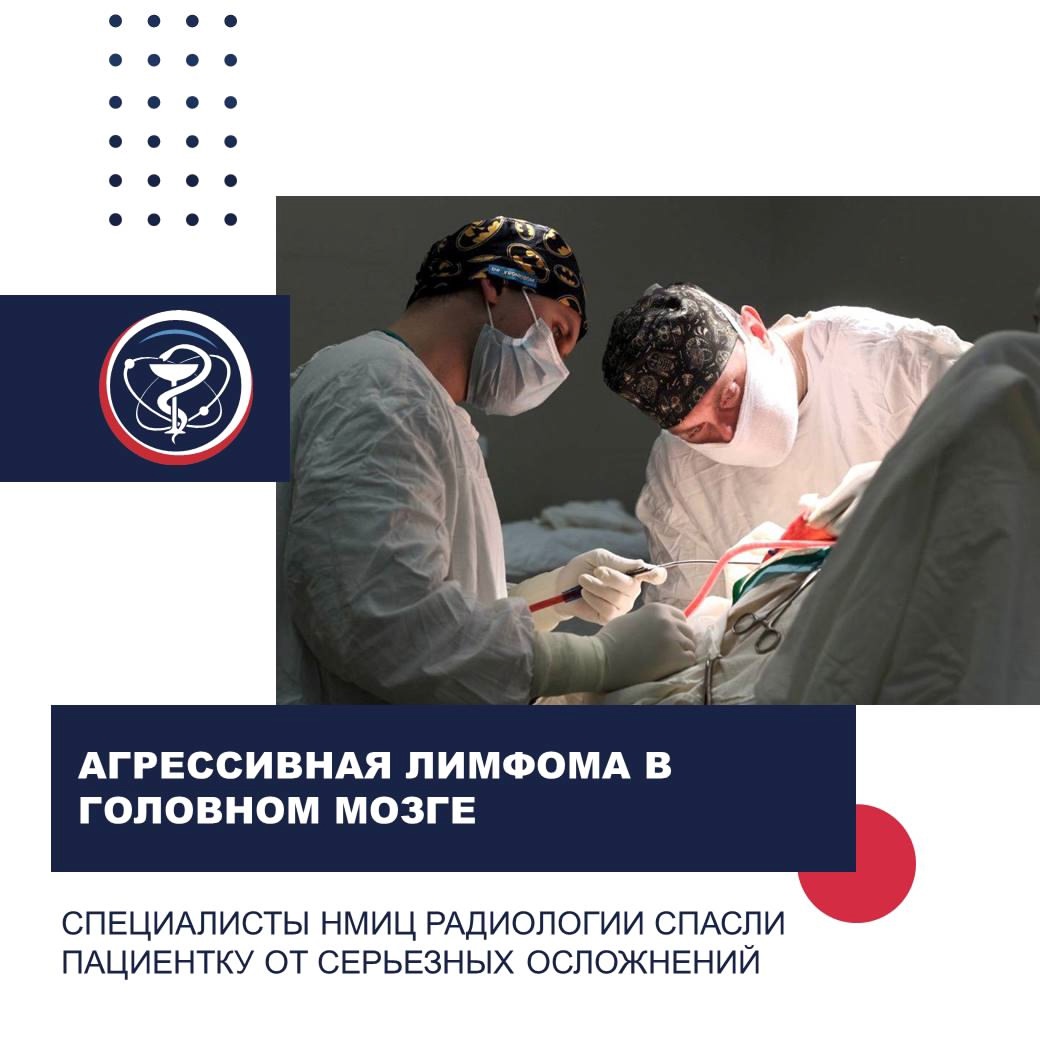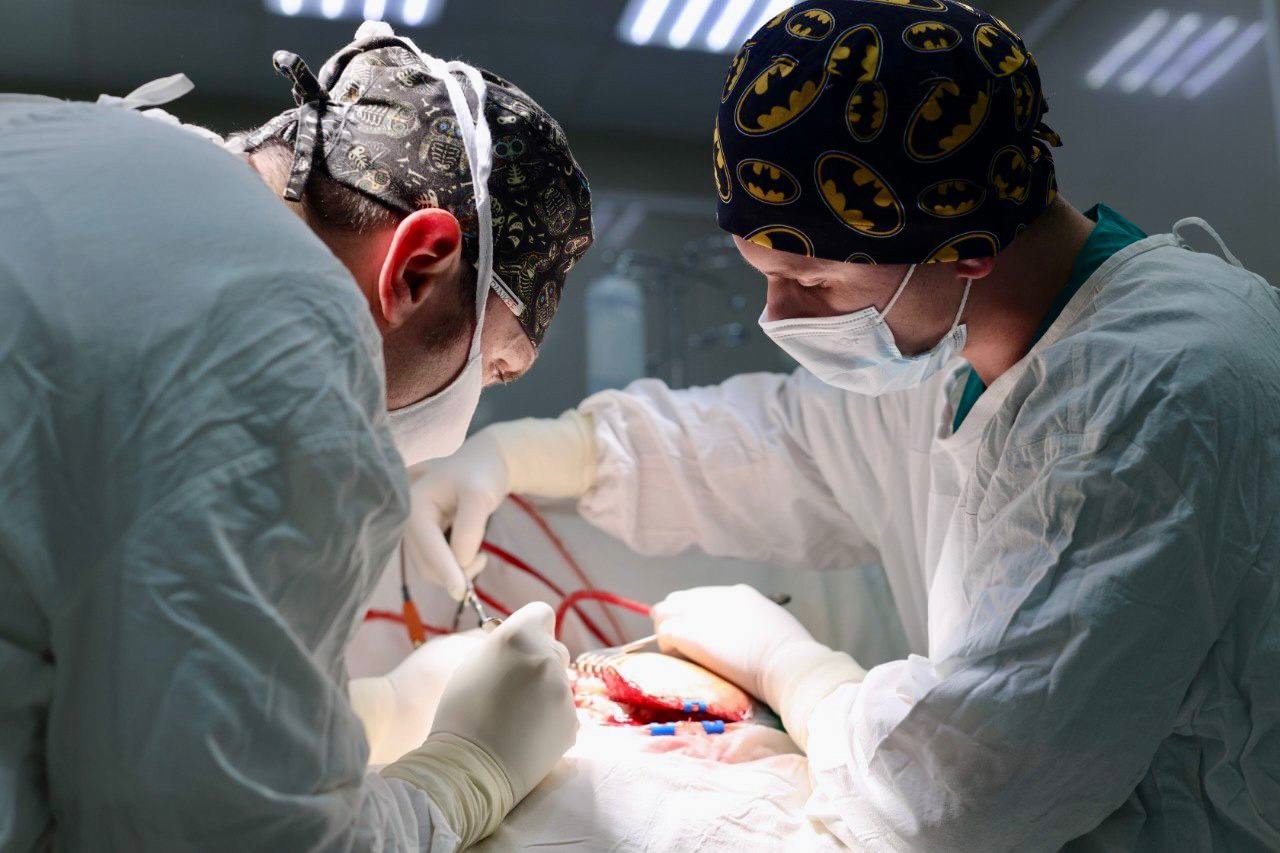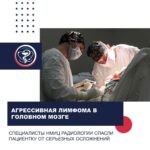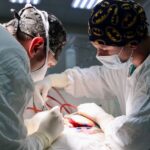AGGRESSIVE BRAIN LYMPHOMA: SPECIALISTS FROM THE NATIONAL MEDICAL RESEARCH RADIOLOGICAL CENTRE SAVED A PATIENT FROM SEVERE COMPLICATIONS
Last autumn, 48-year-old Oksana was diagnosed with central nervous system (CNS) lymphoma—a rare and highly aggressive type of hematologic tumor that affects all structures of the CNS.
Doctors at her local hospital decided to perform intra-arterial chemotherapy, a procedure in which chemotherapy drugs are delivered directly into the carotid artery. Unfortunately, she developed a severe complication—brain edema. This required an emergency decompressive craniectomy with the removal of a large fragment of bone, making further treatment impossible at the time.
After recovering, Oksana decided to seek help on her own at the Hematology Department of the A.Tsyb Medical Radiological Research Centre, – branch of the Federal State Budgetary Institution of the “National Medical Research Radiological Centre” of the Ministry of Health of the Russian Federation.
“In our department, the patient underwent several courses of comprehensive chemotherapy, and we achieved a positive clinical response,” says Evgeny Ziginov, a hematologist in the Bone Marrow Transplantation Unit. “Managing CNS oncological diseases is a complex process that requires sensitivity and meticulous care from doctors. In Oksana’s case, regular monitoring using radiological diagnostics allowed us to track not only the progression of the disease but also its complications.”
Following her previous craniectomy, Oksana faced long-term consequences, including impaired vision and coordination. The most severe complication was the development of deep sensorimotor aphasia—a condition in which a person loses the ability to understand speech and speak. This required another surgical intervention.
“MRI revealed the formation of a cyst in the left temporal region—the area responsible for speech processing. To restore our patient’s ability to speak and comprehend language, we performed neurosurgical intervention,” explains Dr. Sergey Goryainov, a neurosurgeon at the A. Tsyb MRRC. “The procedure was complicated by adhesions from the previous craniectomy. The surgery lasted about five hours. Under ultrasound guidance, our team drained the cystic formation and connected it to the brain’s basal cisterns to ensure natural fluid drainage.”
One week after the operation, Oksana is gradually returning to her normal life—she can understand speech and is actively working with the Centre’s speech therapist. A bone marrow transplant is planned to help maintain her remission.






